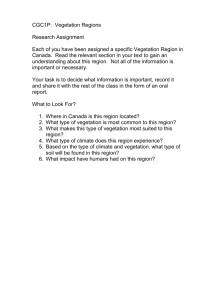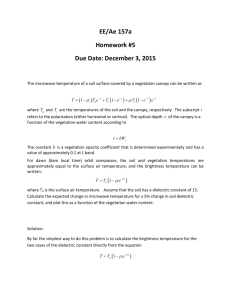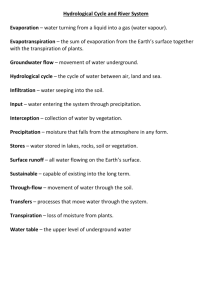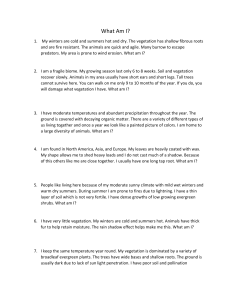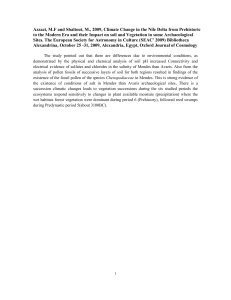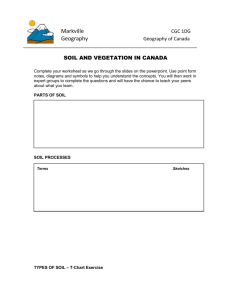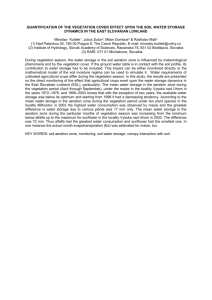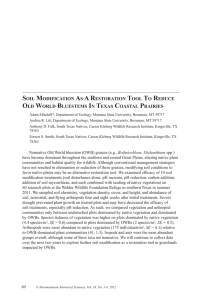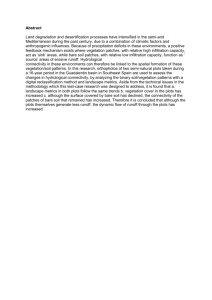HW5_2016a
advertisement
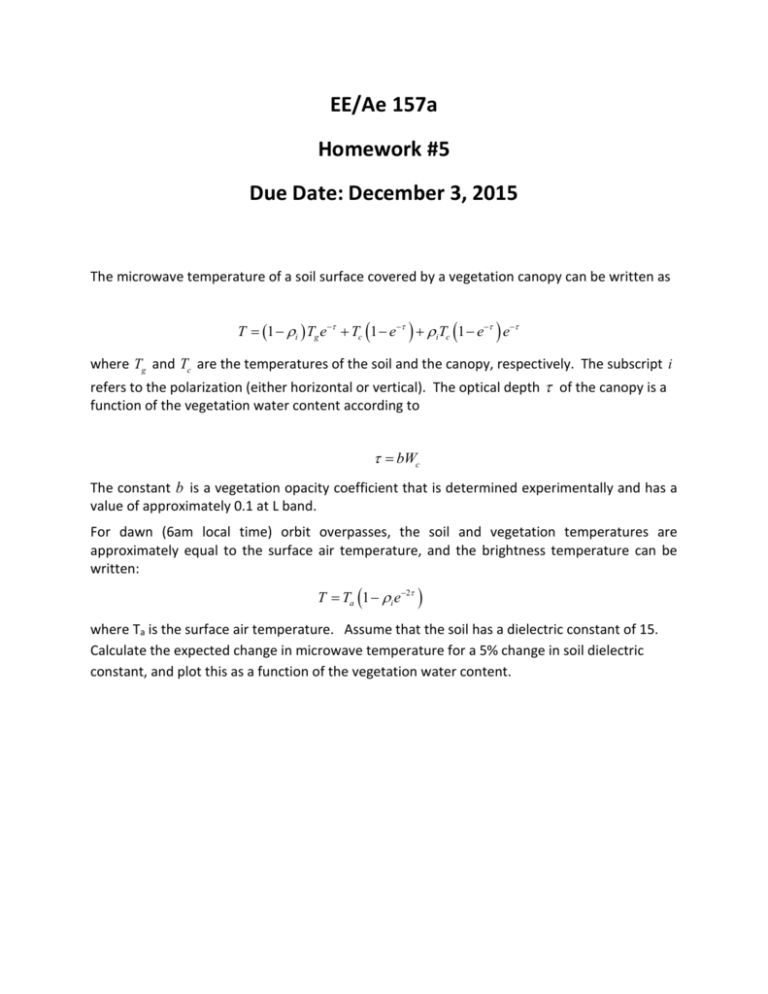
EE/Ae 157a Homework #5 Due Date: December 3, 2015 The microwave temperature of a soil surface covered by a vegetation canopy can be written as T 1 i Tg e Tc 1 e iTc 1 e e where Tg and Tc are the temperatures of the soil and the canopy, respectively. The subscript i refers to the polarization (either horizontal or vertical). The optical depth of the canopy is a function of the vegetation water content according to bWc The constant b is a vegetation opacity coefficient that is determined experimentally and has a value of approximately 0.1 at L band. For dawn (6am local time) orbit overpasses, the soil and vegetation temperatures are approximately equal to the surface air temperature, and the brightness temperature can be written: T Ta 1 i e 2 where Ta is the surface air temperature. Assume that the soil has a dielectric constant of 15. Calculate the expected change in microwave temperature for a 5% change in soil dielectric constant, and plot this as a function of the vegetation water content.
